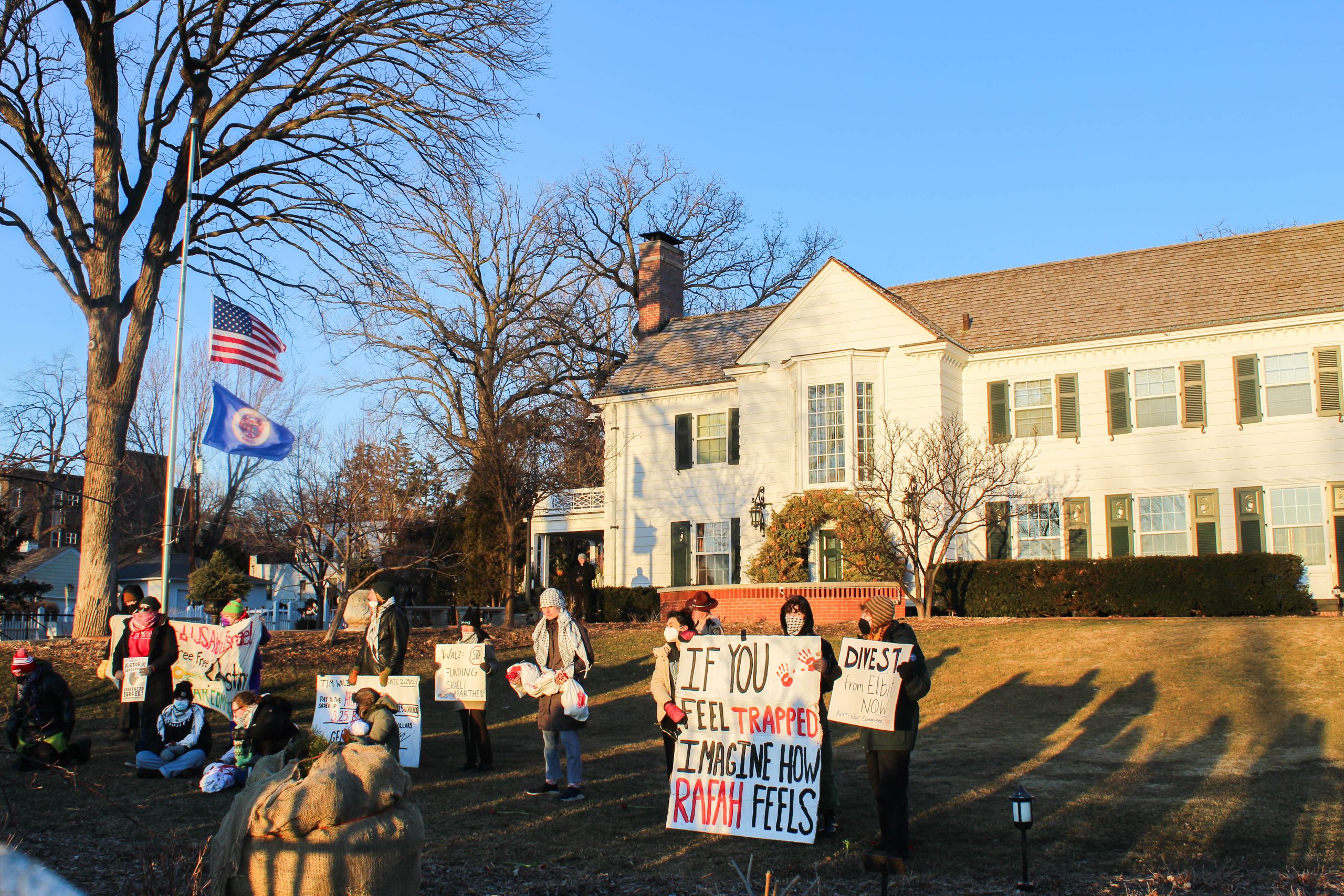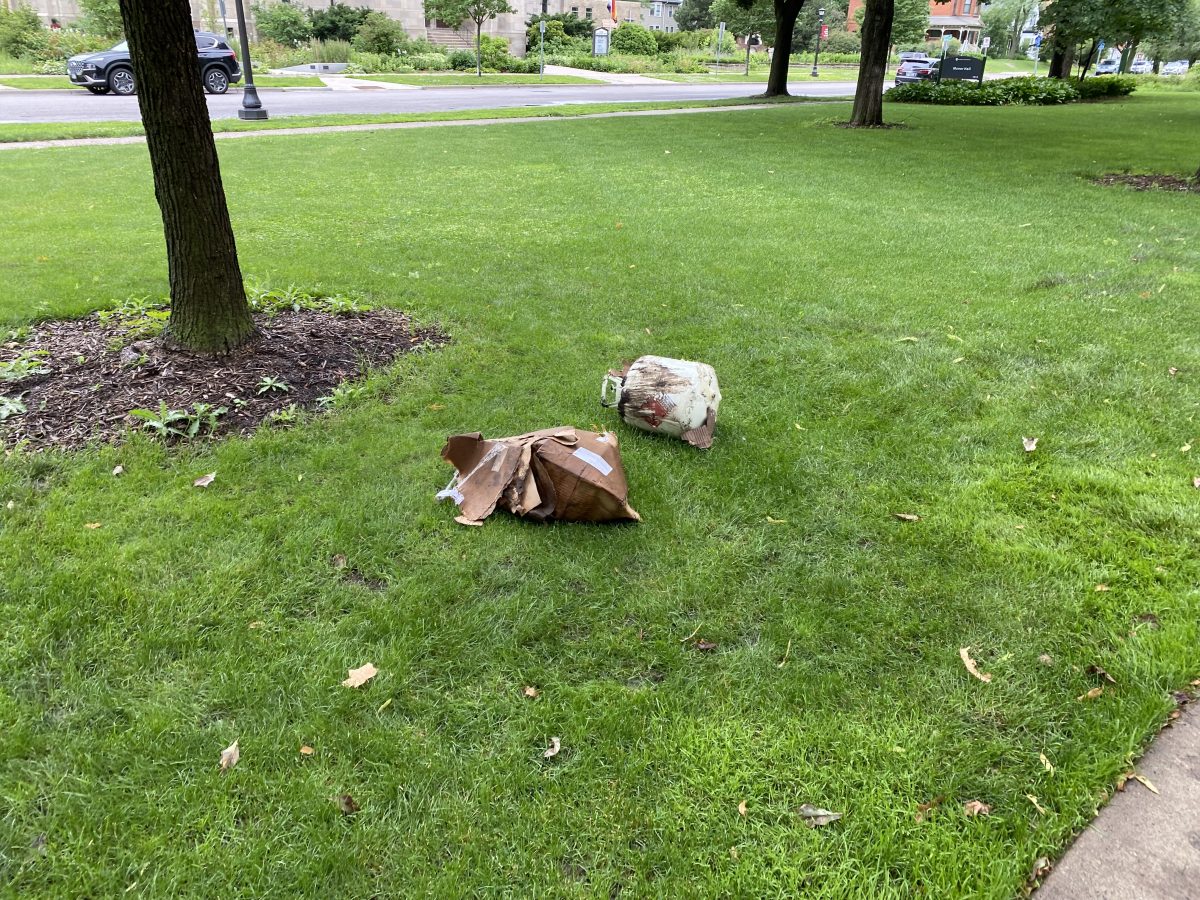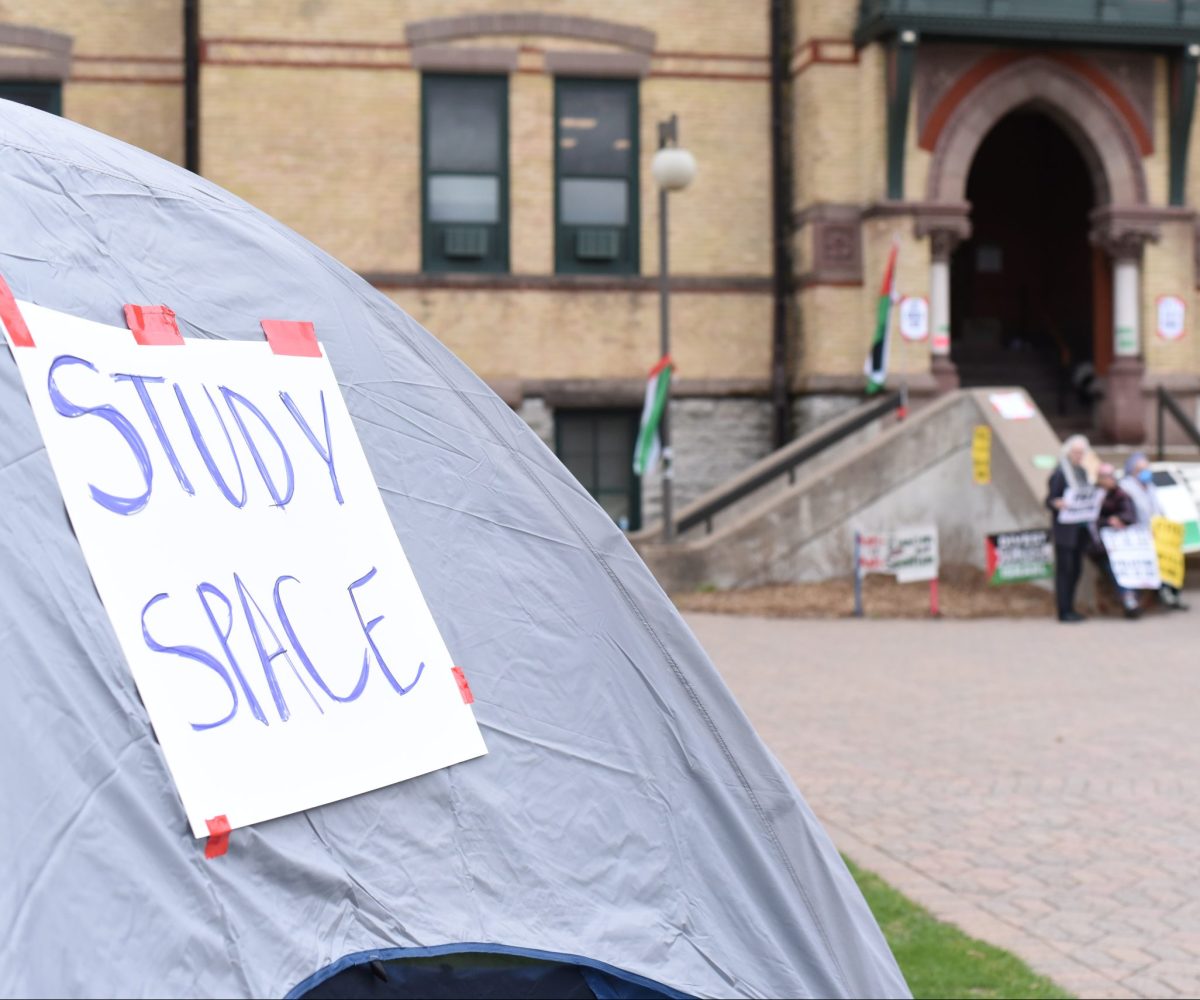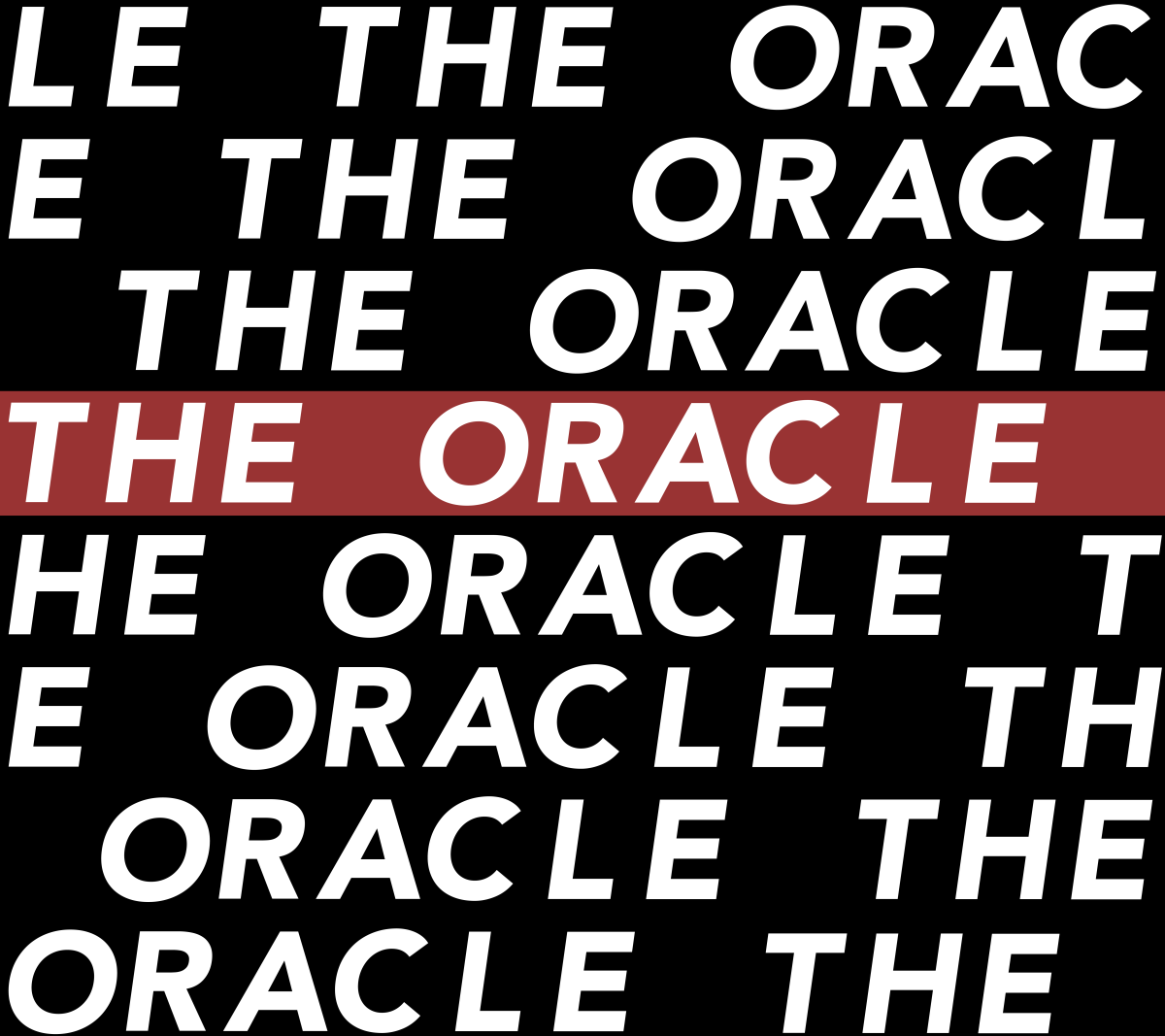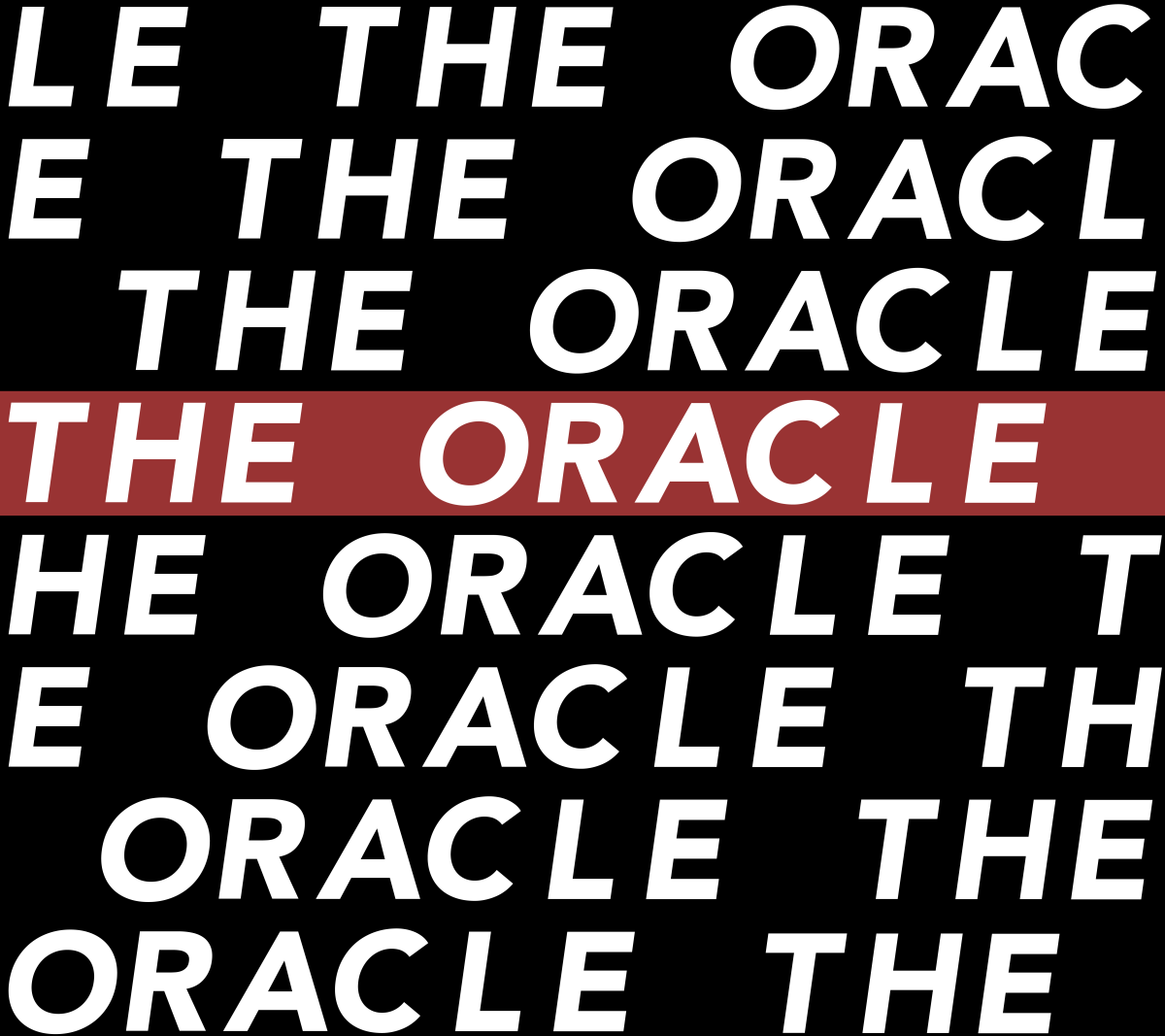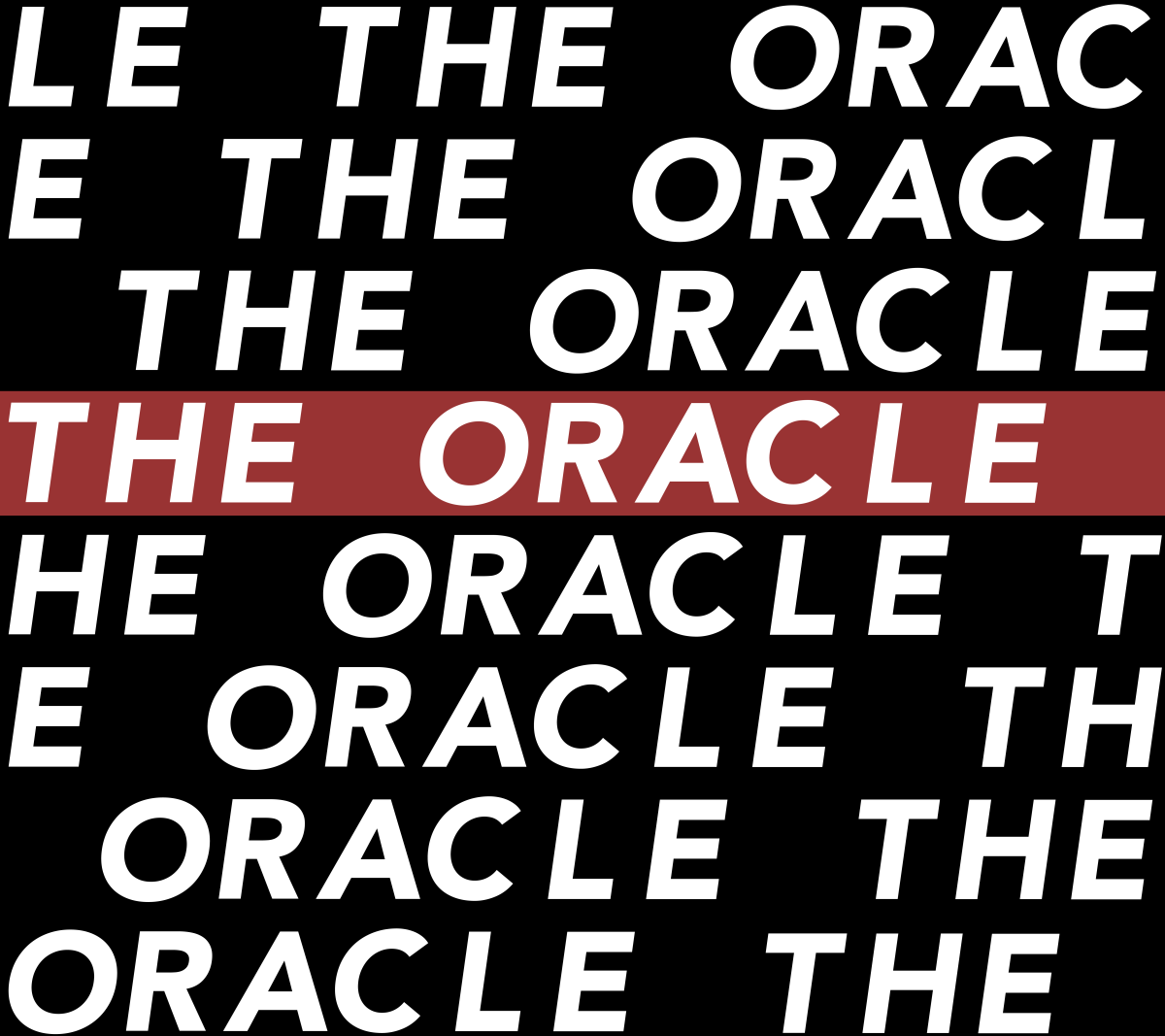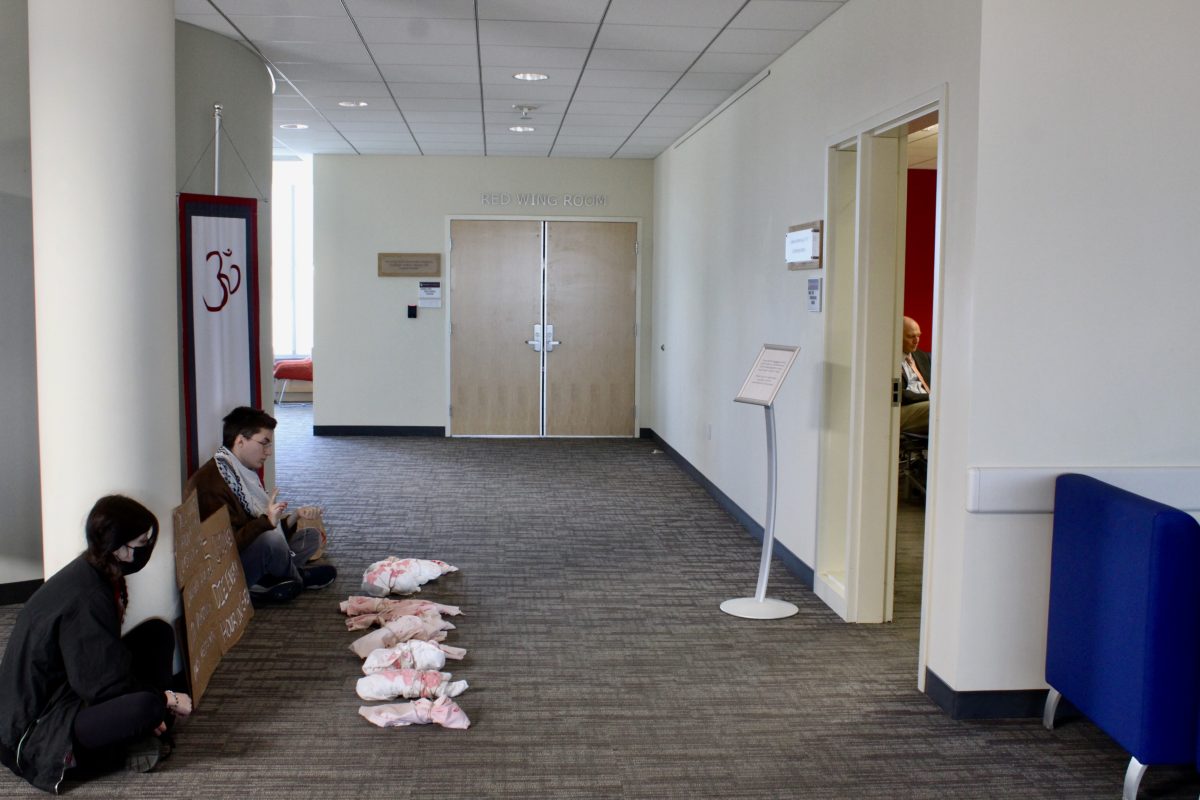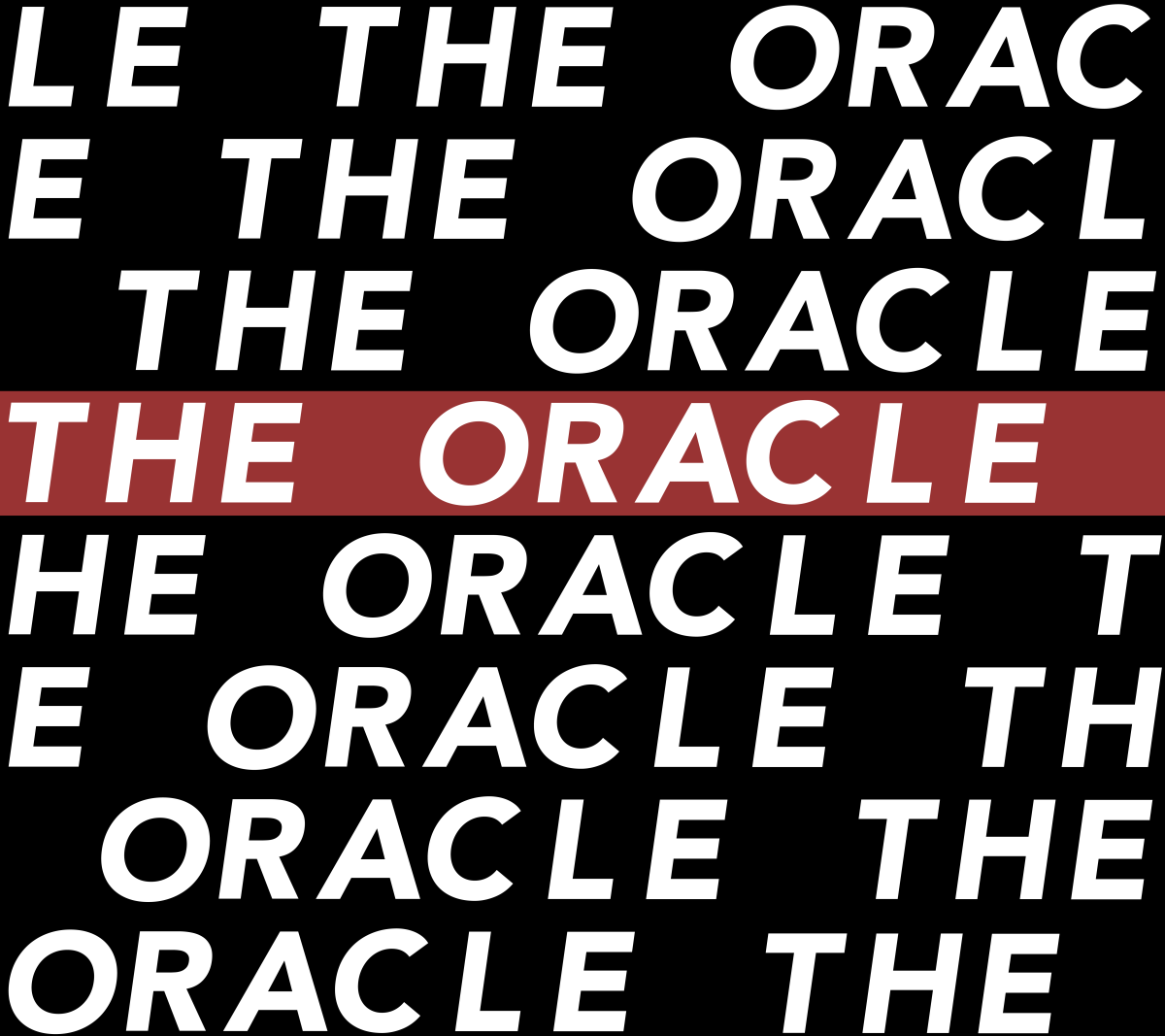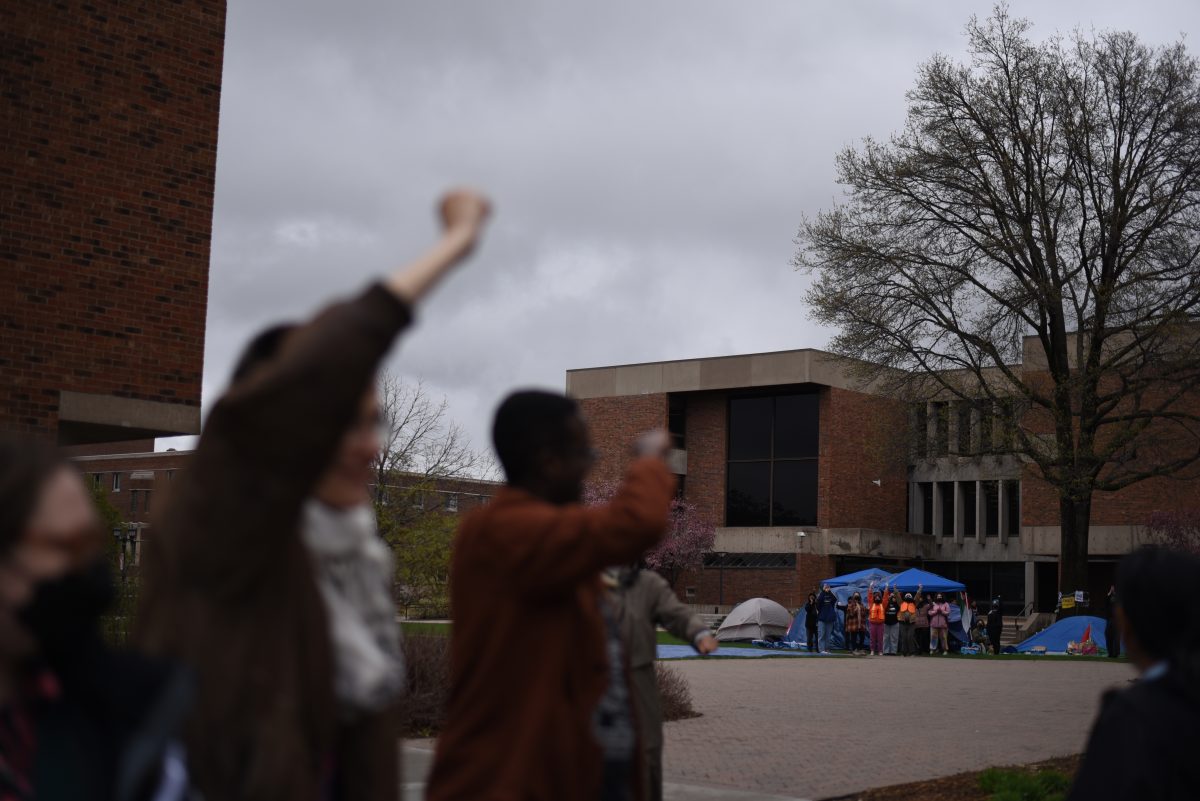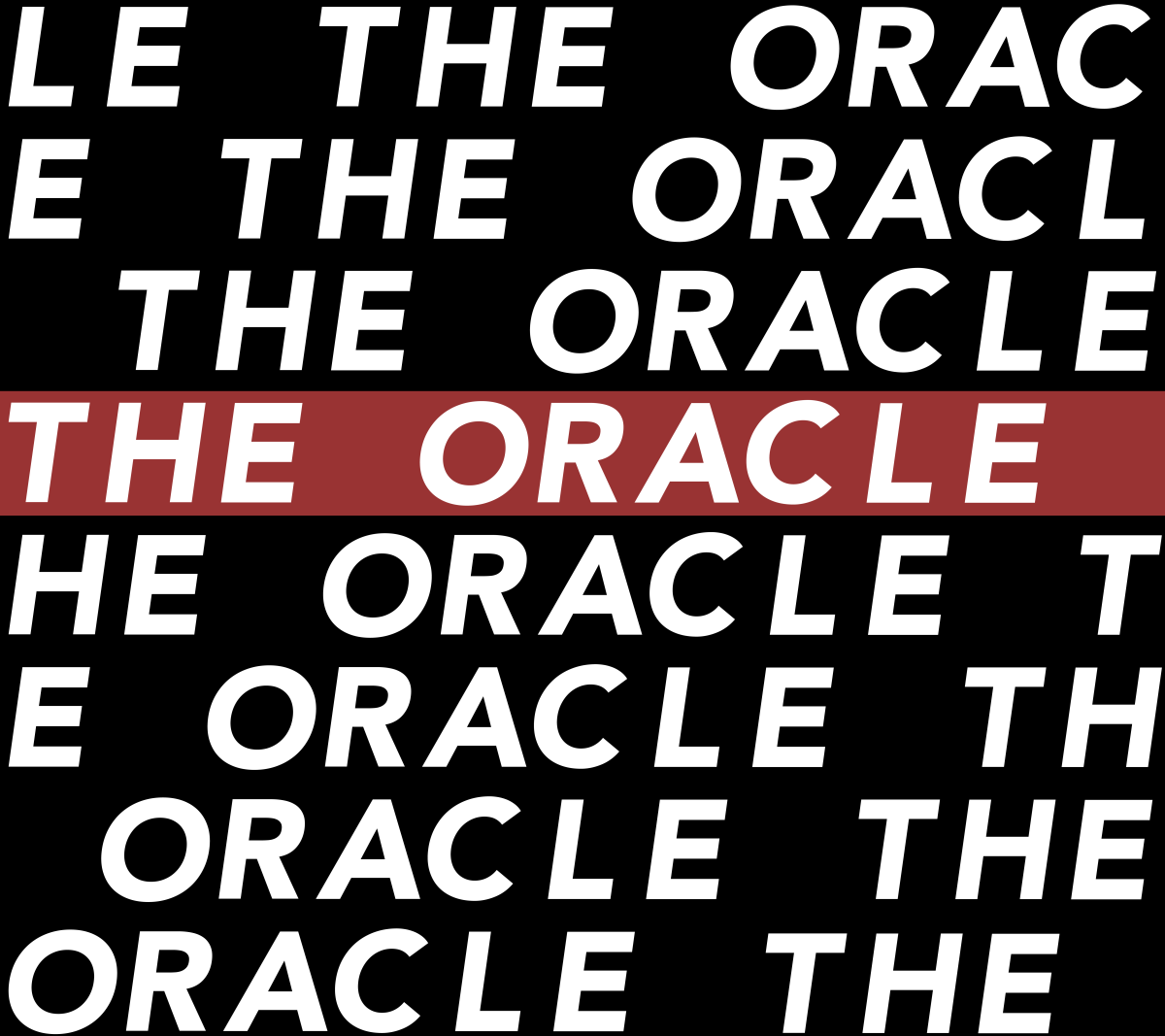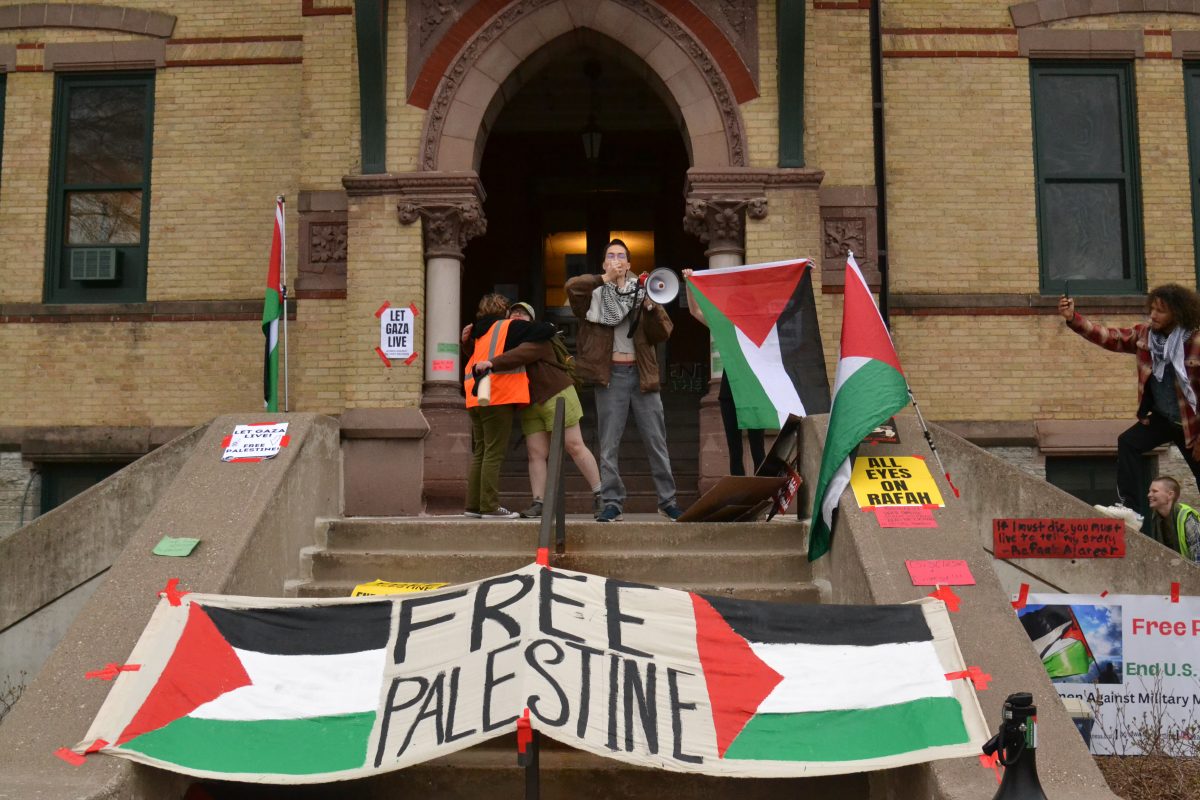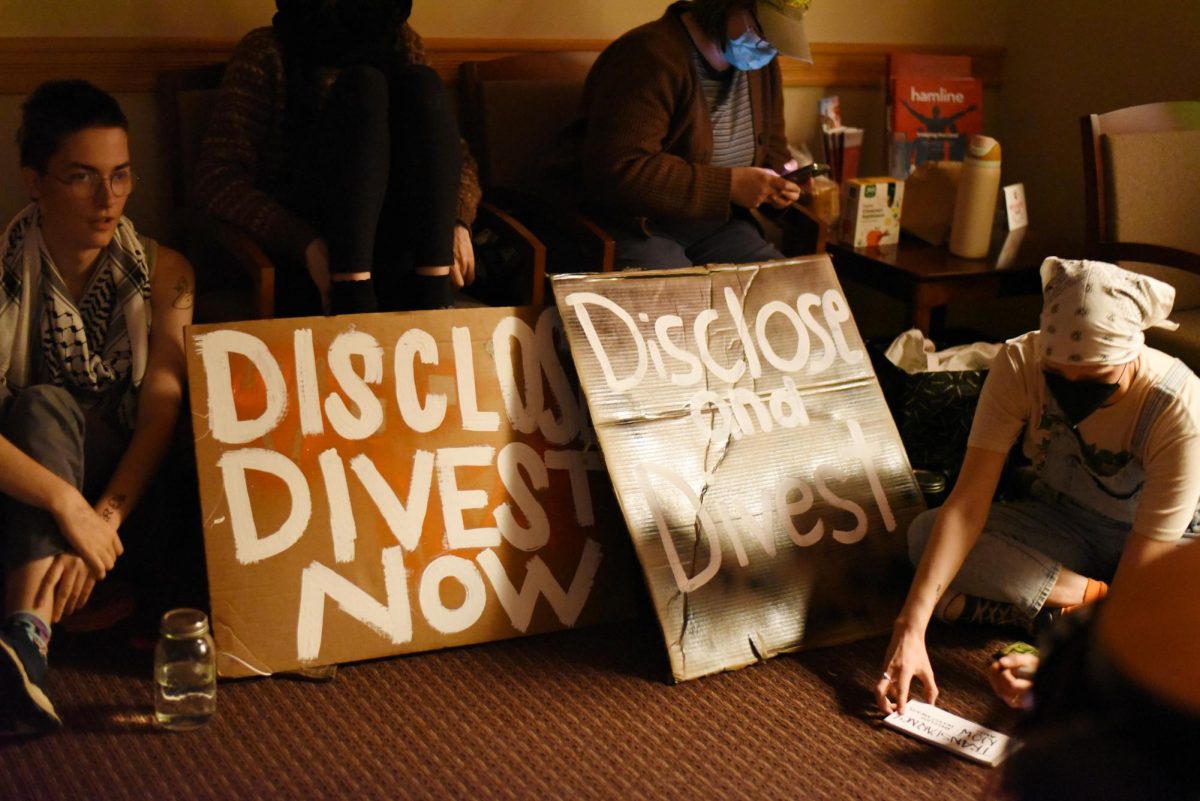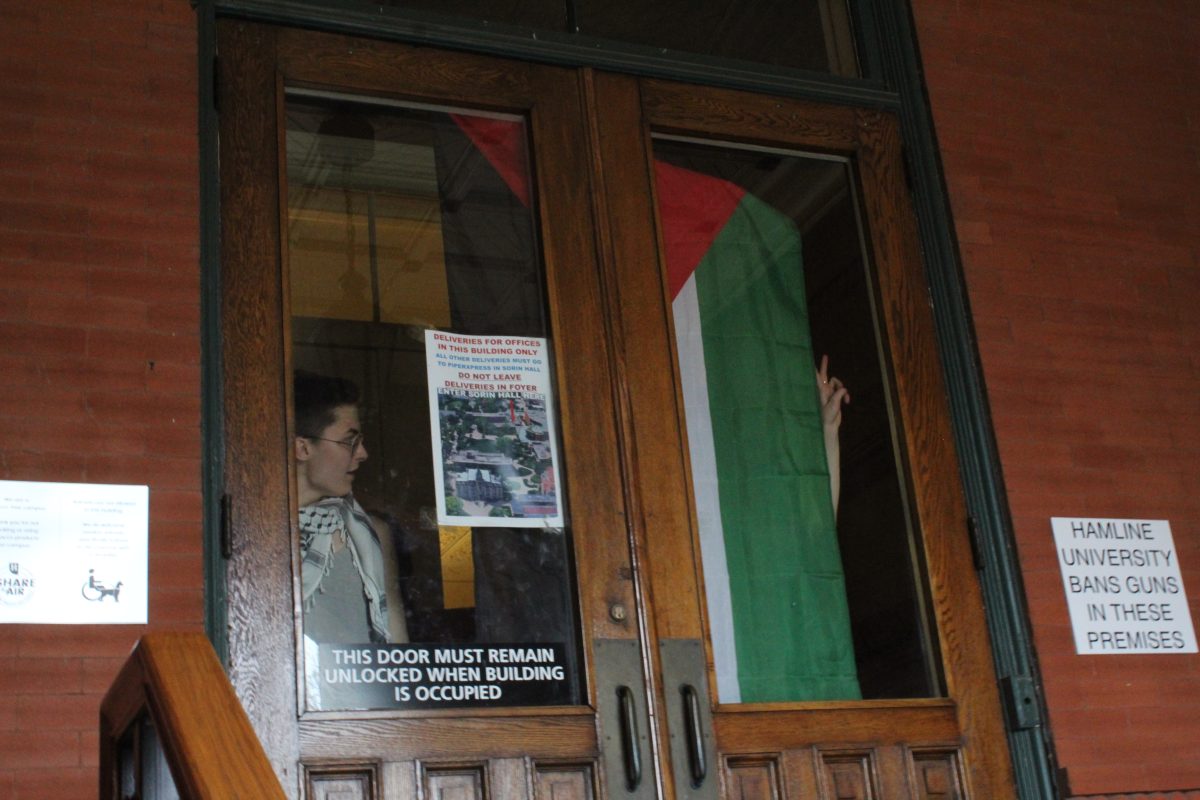A Hamline student was among 14 pro-Palestine protesters cited for trespassing after occupying the lawn of Governor Tim Walz’s temporary residence. The group, organized by the Anti-War Committee (AWC), protested Minnesota investments that have financial ties to the State of Israel. Protesters called on Governor Walz to divest from companies that financially support or benefit Israel.
Junior June Gromis, the Hamline student who was cited, said the action was intended to pressure the governor and the State Board of Investment to divest from the companies with ties to the State of Israel. Governor Walz serves on the Minnesota State Board of Investment with Secretary of State Steve Simon, State Auditor Julie Blaha and Attorney General Keith Ellison.
“We did what we came there to do, we stayed as long as we could, and I think that’s really the point was to apply as much pressure as we could and to use whatever means were available to us until they decided to remove us,” Gromis said.
Addressing the Governor
As part of the protest, Gromis and 13 other activists occupied the Eastcliff Mansion’s lawn for two hours as first Governor Walz’s personal security, then Minnesota State Troopers monitored the group. Governor Walz is staying at Eastcliff during renovations to the Governor’s mansion.
Around 7:20 p.m., State Troopers escorted protestors one at a time to receive citations.
Gromis said the two-hour protest was worth the risk, despite the citation and temperatures below freezing.
“It’s always a little bit nerve wracking or complicated when law enforcement comes in, and you obviously can’t control what law enforcement does or how they’ll react to you,” Gromis said. “You kind of just have to stick to what the plan is and what the group decides to do. […] I felt good to be there. I felt good to be doing what I was doing.”
AWC member Gillian Rath was another of the 14 demonstrators. Immediately following being released with a citation, she reflected similarly on the experience.
“It was very powerful being behind the fence with a whole rally of people supporting us, and chanting on the mic. That was really awesome,” Rath said. “The State Troopers were pretty hostile towards us, but I was just like, ‘I’m gonna chant louder.’”
Gromis also said [she] experienced hostility from State Troopers, who were standing behind the demonstrators in 15 minute shifts to contain and monitor the situation.
“Occasionally, when we tried to move back, they kicked some of the people, and I occasionally got a good shove back,” Gromis said. At one point State Troopers did restrain her and “there was some physical pressure applied,” but largely they stood in wait until they distributed citations.
The Boycott, Divest, Sanction (BDS) movement is an international movement of advocates for Palestinian equity and divestment from the State of Israel. Erin Stene, an AWC member and another of the cited demonstrators, said BDS advocates in Minnesota have been active in divestment actions for many years.
“A significant amount of planning and intention has gone into even just putting this pressure on Walz,” Stene said. “There’s actually probably a decade-long campaign from the BDS community that the AWC joined to get the State Board of Investment to divest from all these Israeli companies and complicit companies.”
Stene felt that the Feb. 28 act of civil disobedience, as she referred to it, was a reaction to not being heard in typical actions that BDS advocates in Minnesota have been taking. In its opposition to the Israeli government, some have accused the BDS movement of antisemitism. In response to those concerns, Minnesota is one of many U.S. states with “anti-BDS” laws which prohibit state relationships with companies who discriminate against the State of Israel.
“When [BDS advocates] are speaking before Steve Simon, Julie Blaha, Keith Ellison and Governor Walz at Board of Investment meetings, they do not even look up,” Stene said. “They don’t look up, they don’t make eye contact. You’re not listening to us, even when we are in the room.”
Cities such as Detroit, Atlanta, San Francisco and Chicago have approved City Council resolutions to call for a ceasefire in Gaza in the first few months of 2024. Governor Walz has made no public statements acknowledging the conflict since condemning Hamas in an Oct. 20 social media post.
Hamline students on campus
More students at Hamline are organizing in support of Palestine. The day after Gromis was cited at the Governor’s residence, students gathered on campus as part of the Students for Justice Coalition. By the time of this publication, over 80 members had joined a group chat used for planning and communication.
Senior Mohamed Shukri met with fellow students who expressed a desire to advocate for a free Palestine last Thursday during convo hour. After spending the Fall 2023 semester in Cairo, Egypt, at The American University in Cairo (AUC), Shukri said he saw a stark contrast between student actions at AUC and Hamline in regards to the humanitarian crisis in Gaza.
“[At AUC] there were pro-Palestine rallies happening during their version of convo hour almost every single day,” Shukri said. “That really was truly inspiring.”
Shukri said he believes there is a lack of Palestinian advocacy at Hamline. He said he connects his advocacy for Palestine to the education he has received at Hamline.
“We as Hamline students are always hearing the Hamline slogan, ‘Take the Lead,’ but we’ve been very secondary in everything,” Shukri said. “This institution encourages us to do everything that we hope to do, everything this movement is. At this point, I hope that we don’t receive administrative backlash because this is what Hamline is preparing us to do.”
Shukri invites and encourages every member of the community to get involved with the group and says that all are welcome.
A national shift
Pro-Palestine activists have engaged in escalating public actions throughout February as the death toll in Gaza surpassed 30,000.
On Feb. 25, Senior Airman Aaron Bushnell set himself on fire outside of the Israeli embassy in Washington, D.C. in protest of the U.S.’s continued monetary and military support of the State of Israel in its occupation of Gaza. Bushnell later died from his wounds. Veterans in support burned their uniforms at a vigil in Bushnell’s honor.
Meanwhile, President Biden has polarized Democrats with his continued support of Israel, most recently referring to himself as a Zionist during an interview with Seth Meyers on Feb. 26.
In the past week, the United Nations Security Council warned that famine in Gaza is imminent. On Feb. 29, the Israeli Defense Force opened fire at Gazans surrounding food aid trucks near Gaza City, killing over 100 people. These events were followed by a wave of increased U.S. activism in support of a free Palestine. Protests erupted on March 2’s Global Day of Action for Palestine in cities including Chicago, New York City, Philadelphia and Washington, D.C.
Hamline students’ actions are echoes of that national response.
“The reason we’re organizing is because we see injustice in the world,” Shukri said. “We see a lack of empathy going on. We see a lack of action in terms of stopping things that we know are unethical and moral, and the reason that we gather as students is not to cause more hate in this world, is not to cause more divide in this campus, or in this country: it’s to heal.”


